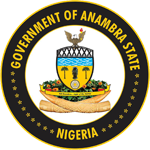PUBLIC-PRIVATE PARTNERSHIPS FOR INFRASTRUCTURE DEVELOPMENT: INSIGHTS FROM ANAMBRA AND LAGOS STATES

By Nwanodu Angela :
Africa’s digital future took center stage at the Hyperscalers Convergence Africa Conference, held at the Federal Palace Hotel in Lagos. Top experts in technology and infrastructure development gathered to explore and shape regulatory frameworks that will propel the growth of digital infrastructure across the continent.
Among the distinguished panelists were the Commissioner for Innovation, Science, and Technology, Lagos State, Olatubosun Alake, and the Managing Director/CEO of the Anambra State ICT Agency, Chukwuemeka Fred Agbata, who shared insights from their respective states on the journey so far.
In his remarks, Chukwuemeka Fred Agbata highlighted Anambra’s success story through Public-Private Partnerships (PPP), particularly in digital infrastructure development.
He noted that Governor Charles Soludo’s initiative to waive Right of Way (RoW) charges was pivotal in attracting investors and enhancing ease of business, following the examples set by Lagos and Kaduna.

“Governor Soludo’s decision to waive RoW charges significantly boosted connectivity and economic growth in the state.
“Government is financially burdened, so we have focused on collaborating with local partners to connect our services.
“For the first time, we now have a civil service with access to the internet – another successful example of PPP in action,”Agbata noted.
He explained that a major component of the state’s digital transformation strategy has been leveraging partnerships with local businesses to foster digital access across government institutions.
Agbata maintained that such collaborations were critical for states, not just Anambra, as efficient resource management is key to meeting diverse governance priorities.
He emphasized that partnerships like this are instrumental in driving progress in critical areas such as digital infrastructure, as they distribute the burden of development and maintenance, making them an essential component of effective modern governance.
Olatubosun Alake, Lagos State’s Commissioner for Innovation, Science, and Technology, highlighted the importance of stakeholder consultation and advocacy, particularly when engaging the private sector.
He urged companies to establish their own codes of conduct to ensure smooth interactions with the government and legislative bodies, which play a critical role in reforms aimed at fostering ease of doing business.
“Ease of doing business is pivotal because it determines whether an investor will engage,” Alake said.
He also emphasized the importance of qualified personnel in civil service sectors and advocated for competitive pay packages to ensure optimal service delivery.
Other distinguished panelists included Dr. Ayotunde Coker, Chairman, Africa Data Centres Association; Tony Izuagbe Emoekpere, President, Association of Telecommunications Companies of Nigeria; and Douglas Njenga, Director of Regulatory Affairs and Special Projects, WIOCC Group. The session was moderated by Sade Dada, Public Policy Manager for Anglophone West Africa at Meta.
The discussions underscored the importance of regulatory frameworks, partnerships, and targeted reforms in driving digital infrastructure development across Nigeria and the African continent.

0 Comments